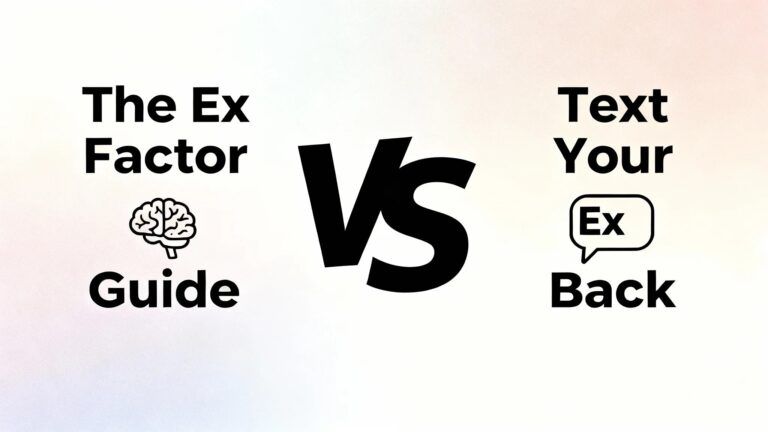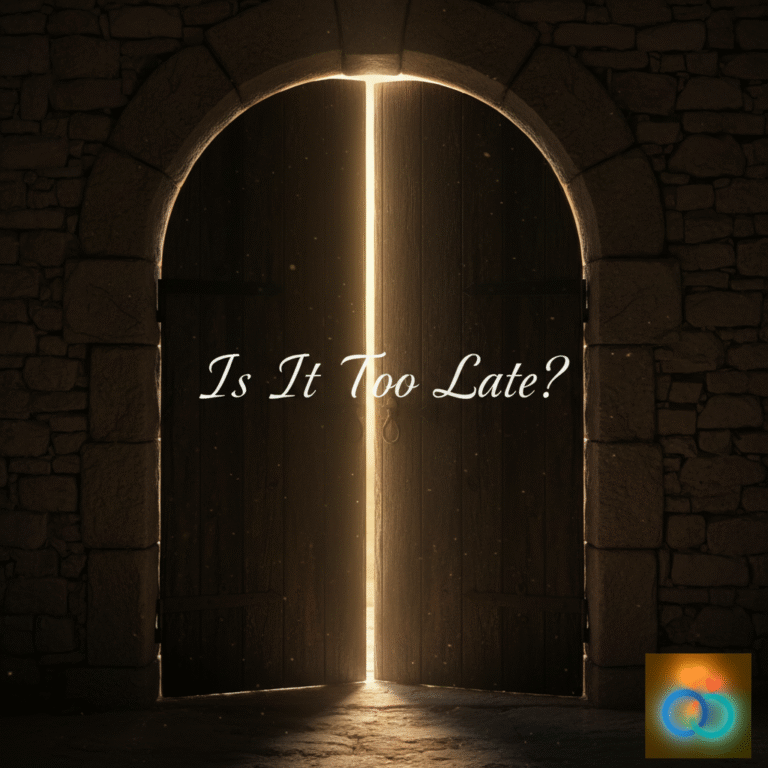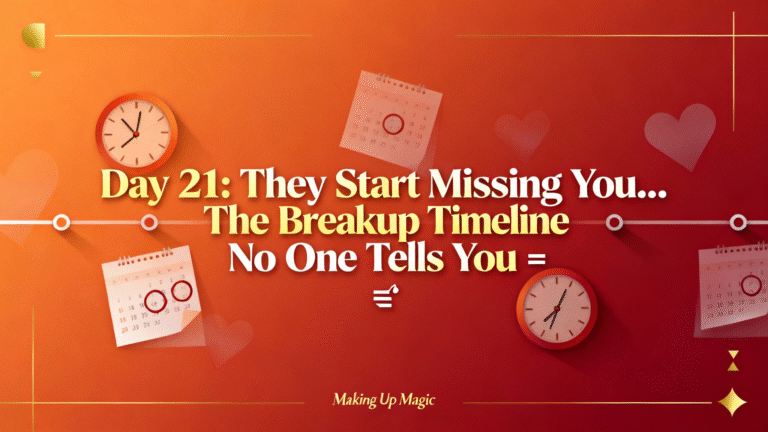You’re looking at the calendar, aren’t you?
Counting the days since the breakup. Maybe you’ve even circled a date a month from now, hoping it’s the day things will magically be okay again. You’re asking Google, “How long does it take to get your ex back?” because what you’re really asking is, “When will this pain stop?”
I get it. That need for a concrete timeline is a desperate search for hope in the middle of chaos.
Here’s the honest truth: there is no single magic number. But there are predictable patterns, psychological phases, and realistic timelines. The goal isn’t to passively wait for a date on the calendar, but to understand the journey your ex is on, and more importantly, the one you need to be on yourself. The most critical part of this process is creating space, which starts with understanding if the No Contact rule really works.
In This Article
The Core Reason for the Delay: Two Different Timelines
The biggest mistake people make is assuming their ex is on the same emotional journey they are. They’re not. For reconciliation to even be possible, your two separate timelines have to intersect.
The Dumper’s Timeline (Relief → Curiosity → Nostalgia)
The person who ended the relationship is on a completely different path.
- Phase 1: Relief (First 1-4 weeks): Immediately after the breakup, they don’t feel sadness; they feel relief. They’ve been wrestling with this decision for weeks, maybe months. The conflict is finally over. This is why chasing, begging, or pleading with them right now is the worst thing you can do. You are an irritation to their newfound peace.
- Phase 2: Curiosity (Weeks 4-8): After a period of disciplined silence from you, their relief starts to fade. A new feeling creeps in: curiosity. “Why haven’t they called? I thought they couldn’t live without me. Are they okay? Are they… dating someone?” This is the first crack in their certainty.
- Phase 3: Nostalgia & Regret (2-3+ Months): If you’ve stayed strong and focused on your own life, their curiosity can evolve into nostalgia. They start remembering the good times, not the bad. They see you looking happy on social media (not fake happy, genuinely happy) and a powerful thought enters their mind: “Did I make a mistake?” This is the phase where true regret is born.
Your Timeline (Shock → Acceptance → Growth)
Your journey is the mirror opposite.
- Phase 1: Shock & Pain: This is where you are now. It’s a chaotic, painful, and desperate phase.
- Phase 2: Acceptance & Action: This is when you stop fighting the reality of the breakup and start channeling your energy into the action plans in our self-improvement guide.
- Phase 3: Genuine Growth: This is the magic phase. It’s when your happiness is no longer tied to whether they come back or not. You are rebuilding your life, reconnecting with friends, and finding joy on your own. Ironically, this genuine detachment is the most attractive thing you can possibly project.
Reconciliation only becomes possible when they enter their Nostalgia phase while you are in your Growth phase.
So, What’s a Realistic Timeline for These Journeys to Intersect?
Based on this psychological framework, here are the most common scenarios.
Scenario A: The “Quick Regret” (30-60 Days)
This is rare, but it happens. It’s common in shorter relationships or amicable breakups where the dumper’s “Relief” phase is very short. They quickly experience life without you, find it lacking, and their curiosity and nostalgia phases are accelerated.
Scenario B: The “Standard Reconciliation” (3-5 Months)
This is the most common and healthiest path. It allows for a full 30-60 day No Contact period, giving them the space to complete their entire emotional cycle. It also gives you enough time to achieve genuine, noticeable growth.
Scenario C: The “Long Game” (6+ Months)
This is necessary for breakups involving deep wounds, like infidelity, or the end of a very long-term marriage. It takes a significant amount of time to rebuild trust and for both individuals to prove that the negative patterns of the past have truly been broken.
It’s natural to worry if too much time has passed. We have a whole guide on the question of when is it too late to get your ex back that can offer some peace of mind.
How to Influence the Timeline (The Only Part You Control)
You cannot speed up your ex’s emotional journey. Rushing them will only push them away.
The only thing you can control is accelerating your own journey. The faster you move from Shock to genuine Growth, the more likely you are to be in that attractive, confident headspace when their curiosity and nostalgia finally kick in. When that moment comes, you’ll be ready to send the right kind of message. Knowing what to text after no contact is key to re-opening the door correctly.
Frequently Asked Questions (FAQ)
Why does it take so long to get an ex back?
It takes time because the person who ended the relationship needs to go through their own emotional cycle, from relief to curiosity and eventually nostalgia. This process cannot be rushed. True reconciliation requires both people to be in a healthy headspace, which requires time for healing and growth on both sides.
Can I get my ex back after a long time apart?
Yes, it’s definitely possible. Sometimes, a long time apart is necessary for both people to mature and for old negative patterns to fade. If you both have genuinely grown as individuals, a reunion can be even stronger than the original relationship.
What are the signs my ex wants me back?
It’s natural to look for signals of hope. The key is to observe their actions, not just their words. For a complete breakdown, be sure to read our detailed guide on the signs your ex still cares, which covers everything from their social media activity to the types of texts they might send.
Tired of Guessing? Get a Clearer Picture.
These timelines are a guide, but your situation is unique. The length of your relationship, the reason for the breakup, and your actions right now all play a role.
To get a personalized analysis of your specific situation, take the 60-second Breakup Clarity Quiz. It will help you understand your chances and give you the next steps you should take.






